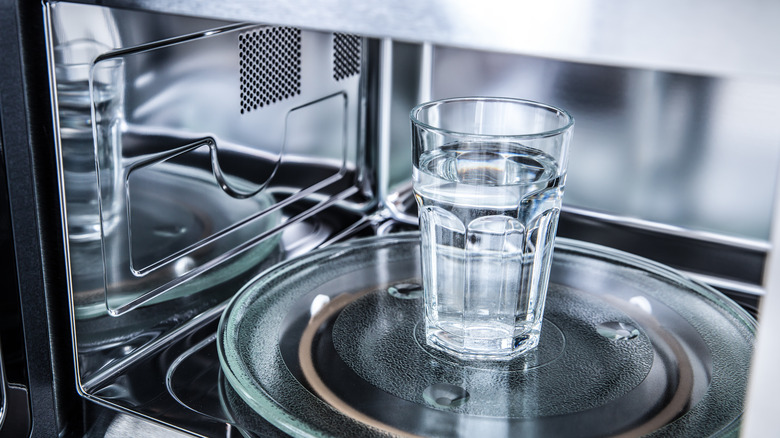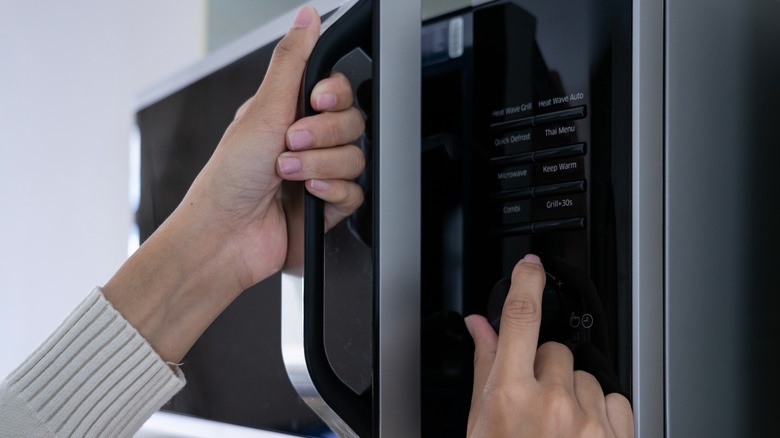What Happens If You Microwave Distilled Water?
While there are those for whom a microwave is an appliance that will never take residence in their kitchens, there are others who swear by it, simply because microwaves can accomplish basic tasks so much more quickly and with much less fuss. These tasks include reheating meals, tempering chocolate, and disinfecting kitchen items like sponges and cutting boards. Others even use microwaves to cook potato, bacon, or fish, per Lifehack.
And while some of us might use our microwaves to warm up soups and beverages which have gone cold, we're more cautious about using the microwave to boil water. Some of that may come down to hearing about a man who used a microwave oven to boil water, only to get burnt because the water, which appears placid at first, suddenly boils over. And if you were to ask whether the story is more than just another urban myth, The Kitchn would confirm that to be "technically" yes, and it comes down to how the microwave works.
Be safe when microwaving water
As physician Nina Radcliffe explains in The Press of Atlantic City, microwaving water or other liquids past the point recommended by manufacturers could result in serious burns because it becomes "superheated" which she describes as "water heated beyond its boiling temperature that does not have signs of boiling — it's unstable. Just taking the container out can cause the water to explode out of the container and cause serious scalding/burns." And because distilled water, by definition, has no impurities, it is more likely to become superheated than regular tap water.
While superheating isn't likely to happen on a regular basis, Radcliffe adds, "if an object such as a spoon or granulated material such as instant coffee, sugar, or artificial sweetener is added, the water may boil vigorously or explode out of the container. Consider adding granulated substances before heating to decrease the chances of this occurring."
One way to check for superheating, per Healthline, is to try and shake up the water molecules by moving the cup in some way (tapping helps!), because doing this will likely release heat that might be trapped in places we can't see. Other ways to keep water from overheating is to pause microwaving water in one-to-two minute intervals, or to place a wooden chopstick or popsicle stick in the water before you give it a turn in the microwave. To protect against burns, be sure to use hot pads while taking out the container of water.

